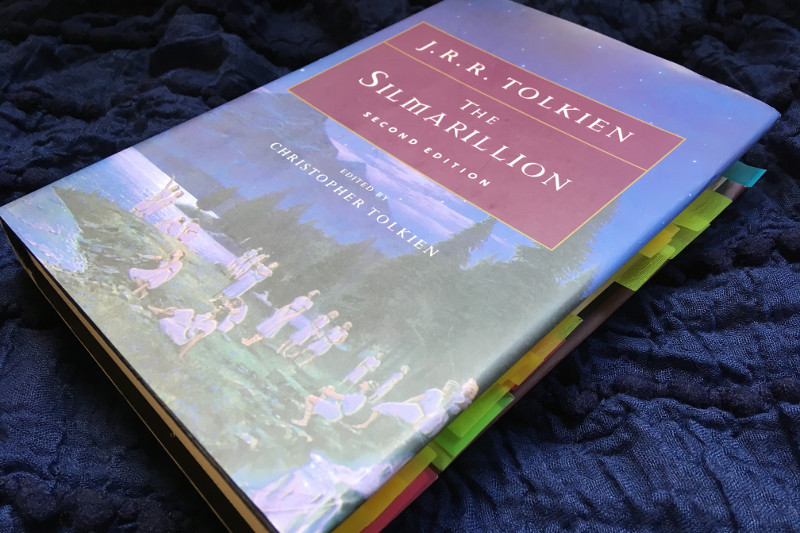- Tuesday, May 01, 2018
- 0 Comments

Today I am pleased to introduce you to a new blog series I’m calling An Eclectic Writing Class. This will be a series of roundup posts with resources for specific writing-related categories I’ve chosen. You’ll understand it as we go. Let’s just jump in.
- Tuesday, April 24, 2018
- 0 Comments
This is going to be one of my weirder fantasy book reviews. When I first thought to alternate between classics and fantasy, I assumed that the fantasy stories would have shorter, less academic-sounding reviews than the classics. Now I realize it all depends on the book. The Three Musketeers is a fun high-adventure story, so it got a fun review showcasing its best features. This week we're diving into one of J.R.R. Tolkien’s dense, not-so-popular works. I’ll reflect on my own experience with the book and give helpful tips and strategies for those who want to read it.
Why I Read The Silmarillion:
A little over a year ago, I nagged a friend into giving me a book recommendation. He chose Dies the Fire, the first in S.M. Stirling’s Emberverse series.So what does that have to do with The Silmarillion?
The series has tons of winks for Tolkien nerds, but my favorite is an eccentric girl named Astrid Larson. At age thirteen, she was already an archer and spoke fluent Sindarin. Traumatic events in the story drive her mind deeper into Middle-earth as a coping mechanism. Basically, everything goes to hell, and she goes bonkers. When they're rebuilding society after the Change, Astrid creates her own mercenary mini-country, the Dúnedain Rangers, where new recruits must learn both Sindarin and sign language. Throughout most of the books I read, Astrid is an entertaining major side character with a religious fanaticism for all things Middle-Earth. To a certain extent, I read The Silmarillion because I wanted to hang out with her just a little longer.
Also, my brother has read The Silmarillion—and he doesn’t read! That’s kind of embarrassing for me as a person who writes high fantasy novels.

- Tuesday, April 17, 2018
- 0 Comments
I started reading classics because school teachers, published authors, and various other pedagogical authority figures told me I should. In the last few years, I’ve read a number of them, ranging from The Importance of Being Earnest to Crime and Punishment. Some I’ve loved, some I’ve hated, and some I kept hoping would get better later in the story (they usually didn’t). The Three Musketeers isn't one of those classics. It’s a classic for a long list of reasons, most of which would spoil the story or make this post way too long. You should read The Three Musketeers, not because it’s a “classic,” but because it is a great freaking book.
 |
- Tuesday, April 10, 2018
- 0 Comments


